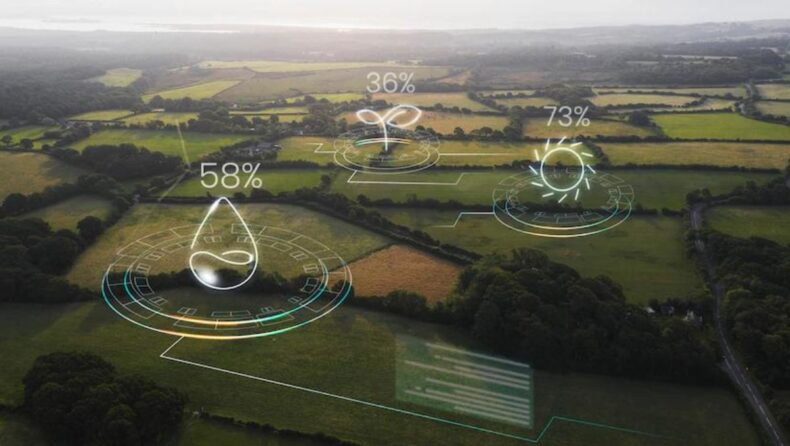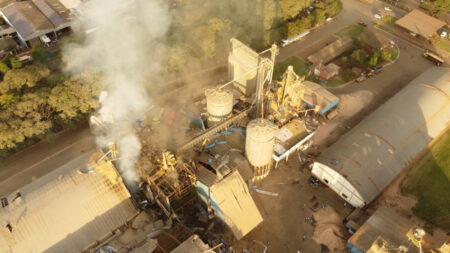The agricultural industry, a vital sector of the global economy, plays a fundamental role in feeding the world’s growing population. With the constant evolution of farming practices, technology advancements, and sustainability efforts, the agricultural industry is continuously adapting to meet the challenges of the future. In this article, we will explore the key aspects and significance of the agricultural industry in driving food production, economic development, and environmental sustainability.
- Feeding the Growing Population
The agricultural industry is responsible for ensuring food security by producing crops, livestock, and other food products on a massive scale. As the global population continues to grow, estimated to reach 9.7 billion by 2050, the agricultural industry faces the critical task of meeting the increasing demand for nutritious and safe food. Through innovative farming techniques, efficient distribution networks, and improved crop varieties, the industry works tirelessly to feed billions of people worldwide.
- Technological Advancements and Precision Farming
Technology has revolutionized the agricultural industry, empowering farmers with advanced tools and techniques to enhance productivity and efficiency. Precision farming, enabled by technologies like GPS, drones, and remote sensing, allows farmers to optimize resource allocation, improve crop yields, and minimize environmental impact. Automated machinery, smart sensors, and data analytics enable precise irrigation, targeted pest control, and real-time monitoring of crop health, leading to better resource management and increased yields.
- Sustainable Farming Practices
In recent years, sustainability has become a central focus in the agricultural industry. Farmers are adopting practices that minimize environmental impact, conserve natural resources, and prioritize long-term ecological balance. Sustainable farming techniques include organic farming, agroforestry, conservation tillage, and integrated pest management. By reducing chemical inputs, improving soil health, and implementing water conservation measures, the industry aims to protect ecosystems, mitigate climate change, and ensure the longevity of agricultural practices for future generations.
- Agribusiness and Economic Development
The agricultural industry encompasses not only primary production but also various downstream activities, forming a robust agribusiness sector. Agribusiness includes processing, packaging, distribution, marketing, and retailing of agricultural products. These activities contribute significantly to economic development, job creation, and rural livelihoods. The industry provides employment opportunities, stimulates local economies, and fosters trade relationships, both domestically and internationally.
- Innovations in Crop Science and Biotechnology
Crop science and biotechnology play a pivotal role in advancing the agricultural industry. Through genetic engineering and biotechnology, scientists develop crop varieties with enhanced traits such as disease resistance, drought tolerance, and increased nutritional value. These innovations have the potential to address challenges such as climate change, pests, and malnutrition, paving the way for more sustainable and resilient agricultural practices.
- Global Trade and Food Security
International trade plays a crucial role in the agricultural industry, ensuring food security and promoting economic growth. Countries with diverse climatic conditions and agricultural capabilities can specialize in specific crops or livestock and export their surplus to regions with different needs. This interdependence creates a global food system, reducing the risk of food shortages and enhancing food security for countries around the world. If you need to earn extra money for trading – you may try real money slots.
- Climate Change Resilience
The agricultural industry is on the front lines of climate change, experiencing its impacts firsthand. Rising temperatures, changing precipitation patterns, and extreme weather events pose challenges to agricultural productivity and food production. However, the industry is responding by implementing climate-smart agriculture practices, such as improved water management, crop diversification, and the use of climate-resilient crop varieties. These adaptations help build resilience and ensure the continuity of food production in the face of a changing climate.
Beyond its primary functions of food production, economic development, and sustainability, the agricultural industry also plays a significant role in fostering social well-being and cultural preservation. Here are a few additional aspects worth highlighting:
Preserving Biodiversity and Cultural Heritage

Agricultural practices have a direct impact on biodiversity conservation. Traditional farming methods and indigenous agricultural knowledge contribute to the preservation of diverse plant and animal species, including heirloom varieties and heritage breeds. By maintaining traditional farming systems and protecting indigenous knowledge, the agricultural industry helps safeguard cultural heritage and promotes the sustainable use of natural resources.
Rural Development and Livelihoods
The agricultural industry is predominantly rural, providing livelihood opportunities for millions of people worldwide. Farming communities contribute to the social fabric of rural areas, sustaining local economies, and supporting small businesses. Moreover, agricultural activities create employment opportunities not only in primary production but also in ancillary sectors such as food processing, agro-tourism, and agricultural research and development. By fostering rural development, the industry helps reduce poverty, inequality, and migration from rural to urban areas.
Education and Knowledge Sharing
The agricultural industry serves as a platform for education and knowledge sharing. Farmers, researchers, and agricultural experts collaborate to develop and disseminate best practices, innovative techniques, and scientific advancements. Agricultural extension services, training programs, and farmer-to-farmer knowledge exchange initiatives facilitate the transfer of knowledge, empowering farmers with the skills and information needed to improve productivity, sustainability, and resilience.
Community Engagement and Food Culture
Agricultural practices often bring communities together, fostering a sense of belonging and community engagement. Local farmers’ markets, community-supported agriculture programs, and farm-to-table initiatives promote direct interaction between producers and consumers, encouraging a deeper understanding of food origins and supporting local economies. Furthermore, agricultural festivals, celebrations, and traditional food events help preserve cultural heritage, promote gastronomic diversity, and strengthen community bonds.
Disaster Resilience and Food Aid
In times of natural disasters or humanitarian crises, the agricultural industry plays a vital role in providing immediate relief and long-term support. Farmers and agricultural organizations contribute to emergency response efforts by supplying food aid, seeds, and livestock to affected communities. Additionally, the industry collaborates with relief agencies and government institutions to rebuild agricultural infrastructure, restore livelihoods, and ensure food security in post-disaster situations.
Innovation and Entrepreneurship
The agricultural industry nurtures innovation and entrepreneurship. Farmers, researchers, and agricultural startups constantly explore new ideas and technologies to improve efficiency, sustainability, and profitability. From vertical farming and hydroponics to smart irrigation systems and agtech solutions, innovative practices and entrepreneurial endeavors drive the industry forward, opening up new opportunities for growth, economic diversification, and technological advancements.
Conclusion
The agricultural industry encompasses a vast array of interconnected aspects that extend beyond food production. From biodiversity conservation and cultural preservation to rural development, education, and disaster resilience, the industry contributes to numerous facets of society. By recognizing and supporting these additional dimensions, we can foster a holistic approach to agriculture that ensures not only food security and economic prosperity but also social well-being, environmental stewardship, and cultural vitality.













